afterLoad (456.22KB) (4.92ms)
afterInitialise (1.27MB) (66.58ms)
afterRoute (840.55KB) (24.46ms)
beforeRenderComponent com_tags (20.75KB) (302μs)
afterRenderComponent com_tags (1.84MB) (194ms)
afterDispatch (25.01KB) (9.09ms)
beforeRenderRawModule mod_articles_category (READ MORE...) (423.86KB) (16.17ms)
Before Access::preloadComponents (all components) (50.9KB) (2.65ms)
After Access::preloadComponents (all components) (103.05KB) (8.87ms)
Before Access::getAssetRules (id:8 name:com_content) (840B) (24μs)
After Access::getAssetRules (id:8 name:com_content) (7.05KB) (52μs)
afterRenderRawModule mod_articles_category (READ MORE...) (6.67KB) (183ms)
beforeRenderRawModule mod_custom (BOOST YOUR IMMUNE DEFENSE) (6.45KB) (47μs)
afterRenderRawModule mod_custom (BOOST YOUR IMMUNE DEFENSE) (3.8KB) (1.36ms)
beforeRenderRawModule mod_tags_popular (Search) (2.36KB) (26μs)
afterRenderRawModule mod_tags_popular (Search) (40.99KB) (240ms)
beforeRenderRawModule mod_custom (Get additionel and more detailed knowledge ) (816B) (42μs)
afterRenderRawModule mod_custom (Get additionel and more detailed knowledge ) (1.55KB) (62μs)
beforeRenderRawModule mod_custom (Overview of vitamins, minerals, and essential fatty acids) (768B) (11μs)
afterRenderRawModule mod_custom (Overview of vitamins, minerals, and essential fatty acids) (960B) (24μs)
beforeRenderRawModule mod_custom (Q10 goes by many names) (608B) (10μs)
afterRenderRawModule mod_custom (Q10 goes by many names) (928B) (19μs)
beforeRenderRawModule mod_custom (Check this before you buy a Q10 product) (752B) (8μs)
afterRenderRawModule mod_custom (Check this before you buy a Q10 product) (944B) (19μs)
beforeRenderRawModule mod_custom (Are you taking supplements) (736B) (9μs)
afterRenderRawModule mod_custom (Are you taking supplements) (1.03KB) (17μs)
beforeRenderRawModule mod_custom (Weight loss that works) (736B) (9μs)
afterRenderRawModule mod_custom (Weight loss that works) (1.03KB) (18μs)
beforeRenderRawModule mod_custom (Antiaging) (720B) (1.05ms)
afterRenderRawModule mod_custom (Antiaging) (912B) (37μs)
beforeRenderRawModule mod_menu (Are you getting enough vitamins and minerals?) (2.5KB) (13μs)
afterRenderRawModule mod_menu (Are you getting enough vitamins and minerals?) (22.39KB) (681μs)
beforeRenderRawModule mod_menu (The key to increased well-being) (736B) (22μs)
afterRenderRawModule mod_menu (The key to increased well-being) (17.83KB) (1.29ms)
beforeRenderRawModule mod_menu (Did you know.....) (720B) (23μs)
afterRenderRawModule mod_menu (Did you know.....) (25.52KB) (370μs)
beforeRenderRawModule mod_custom (Useful Links) (1.06KB) (16μs)
afterRenderRawModule mod_custom (Useful Links) (1.02KB) (36μs)
beforeRenderRawModule mod_custom (Chronic fatigue tied Alan to his bed but Q10 capsules saved him:) (244.28KB) (4.41ms)
afterRenderRawModule mod_custom (Chronic fatigue tied Alan to his bed but Q10 capsules saved him:) (1.06KB) (971μs)
beforeRenderModule mod_custom (Chronic fatigue tied Alan to his bed but Q10 capsules saved him:) (768B) (11μs)
afterRenderModule mod_custom (Chronic fatigue tied Alan to his bed but Q10 capsules saved him:) (1.3KB) (116μs)
beforeRenderRawModule mod_custom (Cholesterol-lowering without side effects:) (368B) (20μs)
afterRenderRawModule mod_custom (Cholesterol-lowering without side effects:) (1.06KB) (41μs)
beforeRenderModule mod_custom (Cholesterol-lowering without side effects:) (752B) (2μs)
afterRenderModule mod_custom (Cholesterol-lowering without side effects:) (1.28KB) (33μs)
beforeRenderModule mod_articles_category (READ MORE...) (20.82KB) (436μs)
afterRenderModule mod_articles_category (READ MORE...) (1.25KB) (47μs)
beforeRenderModule mod_custom (BOOST YOUR IMMUNE DEFENSE) (6.81KB) (13μs)
afterRenderModule mod_custom (BOOST YOUR IMMUNE DEFENSE) (1.28KB) (26μs)
beforeRenderModule mod_tags_popular (Search) (1.98KB) (12μs)
afterRenderModule mod_tags_popular (Search) (1.27KB) (23μs)
beforeRenderModule mod_custom (Get additionel and more detailed knowledge ) (1.17KB) (10μs)
afterRenderModule mod_custom (Get additionel and more detailed knowledge ) (1.3KB) (21μs)
beforeRenderModule mod_custom (Overview of vitamins, minerals, and essential fatty acids) (384B) (10μs)
afterRenderModule mod_custom (Overview of vitamins, minerals, and essential fatty acids) (1.31KB) (22μs)
beforeRenderModule mod_custom (Q10 goes by many names) (208B) (9μs)
afterRenderModule mod_custom (Q10 goes by many names) (1.27KB) (22μs)
beforeRenderModule mod_custom (Check this before you buy a Q10 product) (352B) (9μs)
afterRenderModule mod_custom (Check this before you buy a Q10 product) (1.28KB) (21μs)
beforeRenderModule mod_custom (Are you taking supplements) (352B) (9μs)
afterRenderModule mod_custom (Are you taking supplements) (1.28KB) (20μs)
beforeRenderModule mod_custom (Weight loss that works) (336B) (9μs)
afterRenderModule mod_custom (Weight loss that works) (1.27KB) (21μs)
beforeRenderModule mod_custom (Antiaging) (336B) (9μs)
afterRenderModule mod_custom (Antiaging) (3.77KB) (21μs)
beforeRenderModule mod_menu (Are you getting enough vitamins and minerals?) (2.13KB) (11μs)
afterRenderModule mod_menu (Are you getting enough vitamins and minerals?) (1.3KB) (22μs)
beforeRenderModule mod_menu (The key to increased well-being) (352B) (10μs)
afterRenderModule mod_menu (The key to increased well-being) (1.28KB) (20μs)
beforeRenderModule mod_menu (Did you know.....) (336B) (10μs)
afterRenderModule mod_menu (Did you know.....) (1.27KB) (3.06ms)
beforeRenderModule mod_custom (Useful Links) (1.44KB) (26μs)
afterRenderModule mod_custom (Useful Links) (1.27KB) (56μs)
beforeRenderRawModule mod_menu (Main Menu - English) (29.14KB) (3.93ms)
afterRenderRawModule mod_menu (Main Menu - English) (192.45KB) (4.75ms)
beforeRenderModule mod_menu (Main Menu - English) (720B) (7μs)
afterRenderModule mod_menu (Main Menu - English) (4.86KB) (82μs)
beforeRenderRawModule mod_languages (Sprogskift) (3.94KB) (26μs)
afterRenderRawModule mod_languages (Sprogskift) (22.58KB) (11.35ms)
beforeRenderModule mod_languages (Sprogskift) (720B) (8μs)
afterRenderModule mod_languages (Sprogskift) (5.31KB) (28μs)
beforeRenderRawModule mod_finder () (6.34KB) (14μs)
afterRenderRawModule mod_finder () (128.59KB) (8.61ms)
beforeRenderModule mod_finder () (704B) (7μs)
afterRenderModule mod_finder () (3.29KB) (43μs)
beforeRenderRawModule mod_custom () (6.62KB) (194μs)
afterRenderRawModule mod_custom () (22.66KB) (5.04ms)
beforeRenderModule mod_custom () (704B) (9μs)
afterRenderModule mod_custom () (1.23KB) (72μs)
beforeRenderRawModule mod_menu (Main Menu - English) (5.07KB) (137μs)
afterRenderRawModule mod_menu (Main Menu - English) (6.3KB) (3.29ms)
beforeRenderModule mod_menu (Main Menu - English) (720B) (8μs)
afterRenderModule mod_menu (Main Menu - English) (1.25KB) (73μs)
beforeRenderRawModule mod_languages (Sprogskift Mobil) (912B) (25μs)
afterRenderRawModule mod_languages (Sprogskift Mobil) (3.89KB) (1.92ms)
beforeRenderModule mod_languages (Sprogskift Mobil) (720B) (9μs)
afterRenderModule mod_languages (Sprogskift Mobil) (1.27KB) (47μs)
beforeRenderRawModule mod_finder () (2.3KB) (16μs)
afterRenderRawModule mod_finder () (6.29KB) (810μs)
beforeRenderModule mod_finder () (704B) (7μs)
afterRenderModule mod_finder () (1.23KB) (65μs)
beforeRenderRawModule mod_custom () (8.66KB) (211μs)
afterRenderRawModule mod_custom () (904B) (202μs)
beforeRenderModule mod_custom () (704B) (3μs)
afterRenderModule mod_custom () (2.43KB) (29μs)
beforeRenderRawModule mod_custom () (688B) (83μs)
afterRenderRawModule mod_custom () (896B) (98μs)
beforeRenderModule mod_custom () (704B) (2μs)
afterRenderModule mod_custom () (2.71KB) (22μs)
afterRender (407.2KB) (37.41ms)
| 1 x afterRenderRawModule mod_tags_popular (Search) (40.99KB) (28.3%) | 239.57ms |
| 1 x afterRenderComponent com_tags (1.84MB) (22.89%) | 193.76ms |
| 1 x afterRenderRawModule mod_articles_category (READ MORE...) (6.67KB) (21.64%) | 183.21ms |
| 1 x afterInitialise (1.27MB) (7.87%) | 66.58ms |
| 1 x afterRender (407.2KB) (4.42%) | 37.41ms |
| 1 x afterRoute (840.55KB) (2.89%) | 24.46ms |
| 1 x beforeRenderRawModule mod_articles_category (READ MORE...) (423.86KB) (1.91%) | 16.17ms |
| 1 x afterRenderRawModule mod_languages (Sprogskift) (22.58KB) (1.34%) | 11.35ms |
| 1 x afterDispatch (25.01KB) (1.07%) | 9.09ms |
| 1 x After Access::preloadComponents (all components) (103.05KB) (1.05%) | 8.87ms |
| 1 x afterRenderRawModule mod_finder () (128.59KB) (1.02%) | 8.61ms |
| 1 x afterRenderRawModule mod_custom () (22.66KB) (0.6%) | 5.04ms |
| 1 x afterLoad (456.22KB) (0.58%) | 4.92ms |
| 1 x afterRenderRawModule mod_menu (Main Menu - English) (192.45KB) (0.56%) | 4.75ms |
| 1 x beforeRenderRawModule mod_custom (Chronic fatigue tied Alan to his bed but Q10 capsules saved him:) (244.28KB) (0.52%) | 4.41ms |
| 1 x beforeRenderRawModule mod_menu (Main Menu - English) (29.14KB) (0.46%) | 3.93ms |
| 1 x afterRenderRawModule mod_menu (Main Menu - English) (6.3KB) (0.39%) | 3.29ms |
| 1 x afterRenderModule mod_menu (Did you know.....) (1.27KB) (0.36%) | 3.06ms |
| 1 x Before Access::preloadComponents (all components) (50.9KB) (0.31%) | 2.65ms |
| 1 x afterRenderRawModule mod_languages (Sprogskift Mobil) (3.89KB) (0.23%) | 1.92ms |
| 1 x afterRenderRawModule mod_custom (BOOST YOUR IMMUNE DEFENSE) (3.8KB) (0.16%) | 1.36ms |
| 1 x afterRenderRawModule mod_menu (The key to increased well-being) (17.83KB) (0.15%) | 1.29ms |
| 1 x beforeRenderRawModule mod_custom (Antiaging) (720B) (0.12%) | 1.05ms |
| 1 x afterRenderRawModule mod_custom (Chronic fatigue tied Alan to his bed but Q10 capsules saved him:) (1.06KB) (0.11%) | 971μs |
| 1 x afterRenderRawModule mod_finder () (6.29KB) (0.1%) | 810μs |
| 1 x afterRenderRawModule mod_menu (Are you getting enough vitamins and minerals?) (22.39KB) (0.08%) | 681μs |
| 1 x beforeRenderModule mod_articles_category (READ MORE...) (20.82KB) (0.05%) | 436μs |
| 1 x afterRenderRawModule mod_menu (Did you know.....) (25.52KB) (0.04%) | 370μs |
| 1 x beforeRenderComponent com_tags (20.75KB) (0.04%) | 302μs |
| 1 x beforeRenderRawModule mod_custom () (8.66KB) (0.02%) | 211μs |
| 1 x afterRenderRawModule mod_custom () (904B) (0.02%) | 202μs |
| 1 x beforeRenderRawModule mod_custom () (6.62KB) (0.02%) | 194μs |
| 1 x beforeRenderRawModule mod_menu (Main Menu - English) (5.07KB) (0.02%) | 137μs |
| 1 x afterRenderModule mod_custom (Chronic fatigue tied Alan to his bed but Q10 capsules saved him:) (1.3KB) (0.01%) | 116μs |
| 1 x afterRenderRawModule mod_custom () (896B) (0.01%) | 98μs |
| 1 x beforeRenderRawModule mod_custom () (688B) (0.01%) | 83μs |
| 1 x afterRenderModule mod_menu (Main Menu - English) (4.86KB) (0.01%) | 82μs |
| 1 x afterRenderModule mod_menu (Main Menu - English) (1.25KB) (0.01%) | 73μs |
| 1 x afterRenderModule mod_custom () (1.23KB) (0.01%) | 72μs |
| 1 x afterRenderModule mod_finder () (1.23KB) (0.01%) | 65μs |
| 1 x afterRenderRawModule mod_custom (Get additionel and more detailed knowledge ) (1.55KB) (0.01%) | 62μs |
| 1 x afterRenderModule mod_custom (Useful Links) (1.27KB) (0.01%) | 56μs |
| 1 x After Access::getAssetRules (id:8 name:com_content) (7.05KB) (0.01%) | 52μs |
| 1 x afterRenderModule mod_languages (Sprogskift Mobil) (1.27KB) (0.01%) | 47μs |
| 1 x beforeRenderRawModule mod_custom (BOOST YOUR IMMUNE DEFENSE) (6.45KB) (0.01%) | 47μs |
| 1 x afterRenderModule mod_articles_category (READ MORE...) (1.25KB) (0.01%) | 47μs |
| 1 x afterRenderModule mod_finder () (3.29KB) (0.01%) | 43μs |
| 1 x beforeRenderRawModule mod_custom (Get additionel and more detailed knowledge ) (816B) (0%) | 42μs |
| 1 x afterRenderRawModule mod_custom (Cholesterol-lowering without side effects:) (1.06KB) (0%) | 41μs |
| 1 x afterRenderRawModule mod_custom (Antiaging) (912B) (0%) | 37μs |
| 1 x afterRenderRawModule mod_custom (Useful Links) (1.02KB) (0%) | 36μs |
| 1 x afterRenderModule mod_custom (Cholesterol-lowering without side effects:) (1.28KB) (0%) | 33μs |
| 1 x afterRenderModule mod_custom () (2.43KB) (0%) | 29μs |
| 1 x afterRenderModule mod_languages (Sprogskift) (5.31KB) (0%) | 28μs |
| 1 x beforeRenderRawModule mod_tags_popular (Search) (2.36KB) (0%) | 26μs |
| 1 x afterRenderModule mod_custom (BOOST YOUR IMMUNE DEFENSE) (1.28KB) (0%) | 26μs |
| 1 x beforeRenderModule mod_custom (Useful Links) (1.44KB) (0%) | 26μs |
| 1 x beforeRenderRawModule mod_languages (Sprogskift) (3.94KB) (0%) | 26μs |
| 1 x beforeRenderRawModule mod_languages (Sprogskift Mobil) (912B) (0%) | 25μs |
| 1 x afterRenderRawModule mod_custom (Overview of vitamins, minerals, and essential fatty acids) (960B) (0%) | 24μs |
| 1 x Before Access::getAssetRules (id:8 name:com_content) (840B) (0%) | 24μs |
| 1 x beforeRenderRawModule mod_menu (Did you know.....) (720B) (0%) | 23μs |
| 1 x afterRenderModule mod_tags_popular (Search) (1.27KB) (0%) | 23μs |
| 1 x afterRenderModule mod_custom (Overview of vitamins, minerals, and essential fatty acids) (1.31KB) (0%) | 22μs |
| 1 x afterRenderModule mod_custom (Q10 goes by many names) (1.27KB) (0%) | 22μs |
| 1 x beforeRenderRawModule mod_menu (The key to increased well-being) (736B) (0%) | 22μs |
| 1 x afterRenderModule mod_menu (Are you getting enough vitamins and minerals?) (1.3KB) (0%) | 22μs |
| 1 x afterRenderModule mod_custom () (2.71KB) (0%) | 22μs |
| 1 x afterRenderModule mod_custom (Check this before you buy a Q10 product) (1.28KB) (0%) | 21μs |
| 1 x afterRenderModule mod_custom (Get additionel and more detailed knowledge ) (1.3KB) (0%) | 21μs |
| 1 x afterRenderModule mod_custom (Weight loss that works) (1.27KB) (0%) | 21μs |
| 1 x afterRenderModule mod_custom (Antiaging) (3.77KB) (0%) | 21μs |
| 1 x afterRenderModule mod_custom (Are you taking supplements) (1.28KB) (0%) | 20μs |
| 1 x afterRenderModule mod_menu (The key to increased well-being) (1.28KB) (0%) | 20μs |
| 1 x beforeRenderRawModule mod_custom (Cholesterol-lowering without side effects:) (368B) (0%) | 20μs |
| 1 x afterRenderRawModule mod_custom (Q10 goes by many names) (928B) (0%) | 19μs |
| 1 x afterRenderRawModule mod_custom (Check this before you buy a Q10 product) (944B) (0%) | 19μs |
| 1 x afterRenderRawModule mod_custom (Weight loss that works) (1.03KB) (0%) | 18μs |
| 1 x afterRenderRawModule mod_custom (Are you taking supplements) (1.03KB) (0%) | 17μs |
| 1 x beforeRenderRawModule mod_custom (Useful Links) (1.06KB) (0%) | 16μs |
| 1 x beforeRenderRawModule mod_finder () (2.3KB) (0%) | 16μs |
| 2 x beforeRenderModule mod_menu (Main Menu - English) (720B) (0%) | 15μs |
| 1 x beforeRenderRawModule mod_finder () (6.34KB) (0%) | 14μs |
| 2 x beforeRenderModule mod_finder () (704B) (0%) | 14μs |
| 3 x beforeRenderModule mod_custom () (704B) (0%) | 14μs |
| 1 x beforeRenderRawModule mod_menu (Are you getting enough vitamins and minerals?) (2.5KB) (0%) | 13μs |
| 1 x beforeRenderModule mod_custom (BOOST YOUR IMMUNE DEFENSE) (6.81KB) (0%) | 13μs |
| 1 x beforeRenderModule mod_tags_popular (Search) (1.98KB) (0%) | 12μs |
| 1 x beforeRenderRawModule mod_custom (Overview of vitamins, minerals, and essential fatty acids) (768B) (0%) | 11μs |
| 1 x beforeRenderModule mod_custom (Chronic fatigue tied Alan to his bed but Q10 capsules saved him:) (768B) (0%) | 11μs |
| 1 x beforeRenderModule mod_menu (Are you getting enough vitamins and minerals?) (2.13KB) (0%) | 11μs |
| 1 x beforeRenderRawModule mod_custom (Q10 goes by many names) (608B) (0%) | 10μs |
| 1 x beforeRenderModule mod_custom (Get additionel and more detailed knowledge ) (1.17KB) (0%) | 10μs |
| 1 x beforeRenderModule mod_custom (Overview of vitamins, minerals, and essential fatty acids) (384B) (0%) | 10μs |
| 1 x beforeRenderModule mod_menu (The key to increased well-being) (352B) (0%) | 10μs |
| 1 x beforeRenderModule mod_menu (Did you know.....) (336B) (0%) | 10μs |
| 1 x beforeRenderRawModule mod_custom (Are you taking supplements) (736B) (0%) | 9μs |
| 1 x beforeRenderRawModule mod_custom (Weight loss that works) (736B) (0%) | 9μs |
| 1 x beforeRenderModule mod_custom (Weight loss that works) (336B) (0%) | 9μs |
| 1 x beforeRenderModule mod_custom (Antiaging) (336B) (0%) | 9μs |
| 1 x beforeRenderModule mod_custom (Q10 goes by many names) (208B) (0%) | 9μs |
| 1 x beforeRenderModule mod_custom (Check this before you buy a Q10 product) (352B) (0%) | 9μs |
| 1 x beforeRenderModule mod_custom (Are you taking supplements) (352B) (0%) | 9μs |
| 1 x beforeRenderModule mod_languages (Sprogskift Mobil) (720B) (0%) | 9μs |
| 1 x beforeRenderRawModule mod_custom (Check this before you buy a Q10 product) (752B) (0%) | 8μs |
| 1 x beforeRenderModule mod_languages (Sprogskift) (720B) (0%) | 8μs |
| 1 x beforeRenderModule mod_custom (Cholesterol-lowering without side effects:) (752B) (0%) | 2μs |
 A study has shown that many children and young people suffering from migraines lack coenzyme Q10 and several vitamins. While more research is needed before conclusions can be made, earlier studies have actually shown that Q10 supplementation may have a positive effect on migraine. Because migraine is common among children and adults it is obvious to take a closer look at the underlying cause and compensate for any deficiencies.
A study has shown that many children and young people suffering from migraines lack coenzyme Q10 and several vitamins. While more research is needed before conclusions can be made, earlier studies have actually shown that Q10 supplementation may have a positive effect on migraine. Because migraine is common among children and adults it is obvious to take a closer look at the underlying cause and compensate for any deficiencies.







 People whose dietary consumption of
People whose dietary consumption of 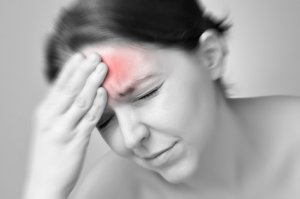
 Migraines may be caused by a number of things and cannot be cured as such. A variety of medications have been designed specifically to treat migraines and, in addition, certain drugs that are commonly used to treat other disorders may even help relieve or prevent migraines. However, an increasing number of migraine sufferers seek more natural ways to deal with their recurrent migraine attacks and one remedy that has attracted a substantial amount of interest is the vitamin-like compound coenzyme Q10.
Migraines may be caused by a number of things and cannot be cured as such. A variety of medications have been designed specifically to treat migraines and, in addition, certain drugs that are commonly used to treat other disorders may even help relieve or prevent migraines. However, an increasing number of migraine sufferers seek more natural ways to deal with their recurrent migraine attacks and one remedy that has attracted a substantial amount of interest is the vitamin-like compound coenzyme Q10.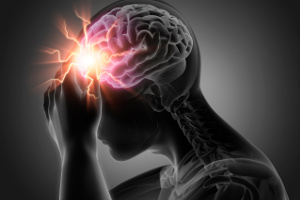

 Research conducted over the past decades reveals that
Research conducted over the past decades reveals that  Most people have experienced a normal headache, while migraines are far more complex. Although the pain can be caused by a number of factors, essential nutrients such as B vitamins, vitamin D, magnesium, fish oil, and coenzyme Q10 may play a vital role according to a review article that is published in Current Pain and Headache Reports. The authors describe how certain nutrients affect underlying mechanisms that may prevent or mitigate different types of headaches.
Most people have experienced a normal headache, while migraines are far more complex. Although the pain can be caused by a number of factors, essential nutrients such as B vitamins, vitamin D, magnesium, fish oil, and coenzyme Q10 may play a vital role according to a review article that is published in Current Pain and Headache Reports. The authors describe how certain nutrients affect underlying mechanisms that may prevent or mitigate different types of headaches. Migraine is a common neurological disease that reduces quality of life and results in many sick days. Migraine medication does not work for everyone and many people have adverse effects, so it makes more sense to focus on prevention. A new American study shows that diets with higher levels of
Migraine is a common neurological disease that reduces quality of life and results in many sick days. Migraine medication does not work for everyone and many people have adverse effects, so it makes more sense to focus on prevention. A new American study shows that diets with higher levels of 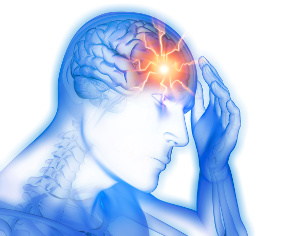 High-dosed supplementation with
High-dosed supplementation with All
All 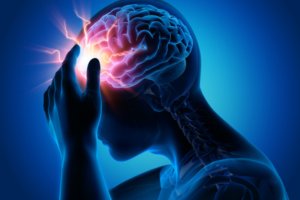 Migraine is the most common neurological disorder. According to a large review article, which was published in the scientific journal, Nutrients, large doses of
Migraine is the most common neurological disorder. According to a large review article, which was published in the scientific journal, Nutrients, large doses of  It is usually dietary fiber and water that get mentioned when the discussion is about constipation and irritable bowel syndrome. However, we also need an adequate intake of magnesium, as this minerals affects our digestion by way of several different mechanisms. Constipation is associated with numerous complaints and conditions such as headache, bad mood, eczema, and aching joints, so it is important to rid the body of toxins and empty the bowel, preferably 1-2 times daily.
It is usually dietary fiber and water that get mentioned when the discussion is about constipation and irritable bowel syndrome. However, we also need an adequate intake of magnesium, as this minerals affects our digestion by way of several different mechanisms. Constipation is associated with numerous complaints and conditions such as headache, bad mood, eczema, and aching joints, so it is important to rid the body of toxins and empty the bowel, preferably 1-2 times daily.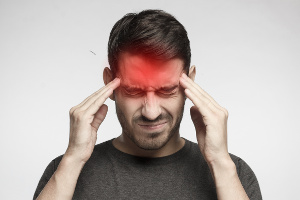 Magnesium deficiencies are rather common and can easily occur if you get too little
Magnesium deficiencies are rather common and can easily occur if you get too little 
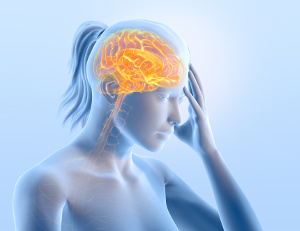
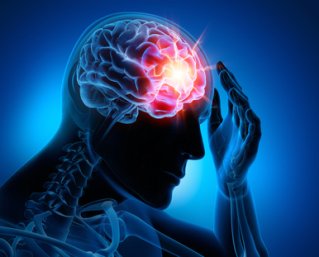 An increasing number of people have started using magnesium supplements against migraine attacks and headaches. Even physicians acknowledge that this mineral may actually have great potential.
An increasing number of people have started using magnesium supplements against migraine attacks and headaches. Even physicians acknowledge that this mineral may actually have great potential.

 There is a growing interest among scientists in selenium’s role in the brain and nervous system, and a placebo-controlled study published in Frontiers in Nutrition shows that
There is a growing interest among scientists in selenium’s role in the brain and nervous system, and a placebo-controlled study published in Frontiers in Nutrition shows that  The low spring sun and bright sunlight can trigger a migraine attack. According to a new report, migraines may also be caused by a lack of
The low spring sun and bright sunlight can trigger a migraine attack. According to a new report, migraines may also be caused by a lack of 
 "After about one week of taking the Q10 supplement I could feel a huge difference," says 23-year old Alan Piccini, who has been suffering from extreme fatigue and muscle aches ever since he was a child.
"After about one week of taking the Q10 supplement I could feel a huge difference," says 23-year old Alan Piccini, who has been suffering from extreme fatigue and muscle aches ever since he was a child. “Taking capsules with co-enzyme Q10 has freed me of the severe side effects of my cholesterol lowering medicine,” Mrs Franken explains.
“Taking capsules with co-enzyme Q10 has freed me of the severe side effects of my cholesterol lowering medicine,” Mrs Franken explains.